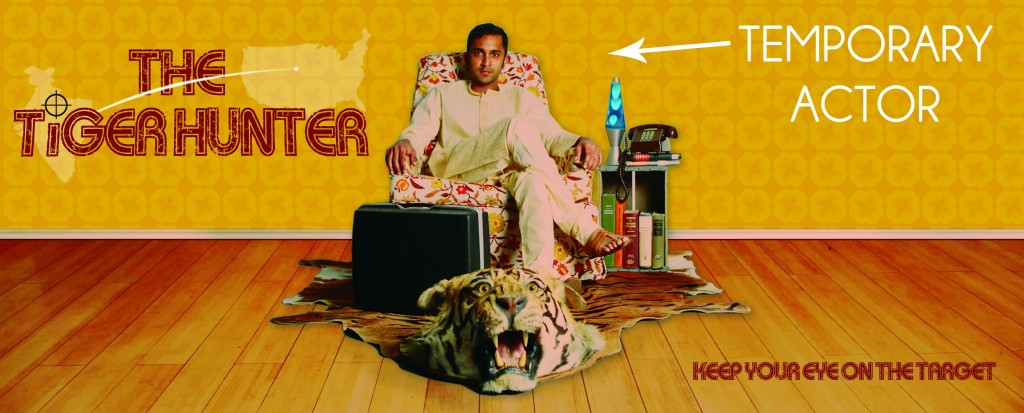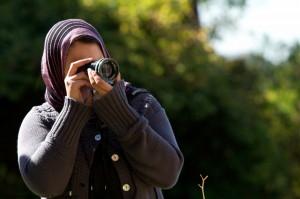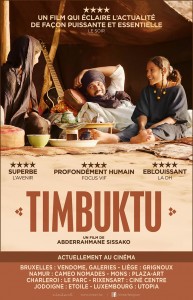Let’s face it: there has been many a cringeworthy attempt at capturing the funny side of being a Muslim in the West. Apart from the brilliant 2010 film Four Lions, I always struggle to think of Muslim-themed comedies that actually make me smile. I was pleased to hear about Lena Khan’s project – The Tiger Hunter – which tells the familiar tale of a young Muslim man moving to 1970s Chicago to achieve his dreams. I interviewed the brilliant and talented Ms. Khan about her project, representations of Muslims, and being a Muslim woman in Hollywood:
Sara Yasin: Why do you think making a film like this is important in this day and age — what do you think have been the gaps in how Muslims are represented in the media?
Lena Khan: Films like this are important because they show Muslims as they are, part and parcel of the world and communities in which we live. We are each unique individuals, and we each have our own stories to tell. And, we don’t all walk around praying at every occasion, or reciting Arabic every two seconds.
While there are many noteworthy exceptions that simply are not well known among the public, there is some truth in the idea that there are two groups of visual entertainment about Muslims: those that depict us as the “bad guy,” and those that go too far in making us unrealistic depictions to try to make people feel bad for us.
The former has deep and negative consequences, but the latter simply doesn’t work. In our film, we have a positive, but subtle, depiction of a Muslim as the lead character. The film is about his quest and vulnerabilities, not his faith. And that is what I think is important, and the best step toward filling that dangerous gap in how we are represented in the media. Our character is Muslim in as much Seinfeld is Jewish. Why? Because we’ve seen other groups normalized in the exact same way, and it works. Now it’s our turn.

SY: There have been a few efforts to change how Muslims are depicted on the screen; what makes The Tiger Hunter so different?
LK: I don’t want to criticize any previous attempts–as they were part of a needed movement for Muslims to engage in the arts, but The Tiger Hunter is different from many films in that is it a film catering to the mainstream viewer, and not to a predominantly Muslim audience.
SY: What were some of the biggest challenges you have faced in creating this movie?
LK: Besides the challenges most filmmakers have–financing and creating an excellent script, the relevant challenges were in trying to create a clean (halal) medium and abiding by my own values. How do you make a film for the mainstream without lude scenes and an extreme amount of foul language? Figuring out how to be funny without compromising some of our principles, while staying true to the story, was one of the bigger challenges.
SY: What are your thoughts on some of the high profile programmes out there that use Muslim characters — i.e Homeland or films like Zero Dark Thirty that have been charged with being Islamophobic? Do you think that this is a trend within the industry or just a response to the kinds of stories/narratives people are interested in?
LK: Having worked in the industry long enough, I know that these stories exist because there is an audience for it. The story of finding and killing bin Laden was the story of last year — can we really expect Hollywood, the industry of stories, to not tell it? I think the problem lies less in the existence of such stories (they will always exist if the inspiration from such stories is found in real life), but the lack of people in our community telling our own stories.
I haven’t seen Homeland, but recently watched Zero Dark Thirty. I know the sort of development meetings that happened to make that script and movie a reality; simply enough, were there more Muslims or people with broader horizons in the room, the film would have had far more depth in the areas that needed it.

SY: Being a Muslim woman in Hollywood sounds like it might be a trying, but entertaining experience. What has that been like and has it influenced your own work (now or in the future)?
LK: Well, I have a big colored piece of cloth on my head, and that is noticeable. Often, that means people do not at first feel I have the same capabilities or knowledge of my art or popular culture as others. In hindsight, however, I think it is for the best–being judged at first makes me work harder to prove myself, and thus improves my work.
SY: What is the story behind Tiger Hunter, and what inspired you to write it?
LK: The Tiger Hunter was first inspired by my father, who told me both stories of his father as a tiger hunter in India, as well as his journey in establishing himself in America–and the compromises he had to make between ambition and what mattered in life. From those first few stories, I began interviewing dozens of other immigrants, people from the 70s, and those on society’s lowest rungs of the time. From there, we did a lot of tweaking, exaggerating, and imagining–and came out with a completely new story.
SY: What kind of Muslim female characters can we expect in this film?
LK: While the lead Muslim role is male, there are a couple smaller supporting Muslim women in roles–such as Sami’s mother and also his childhood crush, Ruby. Both, however, do not wear the headscarf, though Sami’s mother may drape it occasionally. Why? Because most Muslim women of that time and area did not wear the headscarf. But more importantly, because this is a movie about a character, not an attempt to show every aspect of Muslim culture possible in one film…as Muslims begin to go further into this industry, we will learn that that goal is simply not possible (as of now) for a mainstream audience.
SY: Do you think Muslim women are well represented in the media, and how do you think that this will develop in the future?
LK: If we mean America, then not at all. While “Little Mosque on the Prarie” is a show that is popular in Canada, I think it will be a while before you see such a thing on an American television screen. How can we get there? First, I think Muslims need to become a more natural part of society, and contribute to their communities. After all, films and television can tell stories–but they have to be believable. Second, I think we can start getting normalized by being patient. One film does not make a difference, but starting with subtle depictions, a generation of filmmakers will.
SY: Anything else we should know?
LK: As I have been working approximately 17 hours a day on my Kickstarter campaign to make this film a reality, I am obliged to do what I can to emphasize it here. Please contribute to the campaign (even $5 helps) by pledging today at http://kck.st/13tcFx8 and spreading the word!













